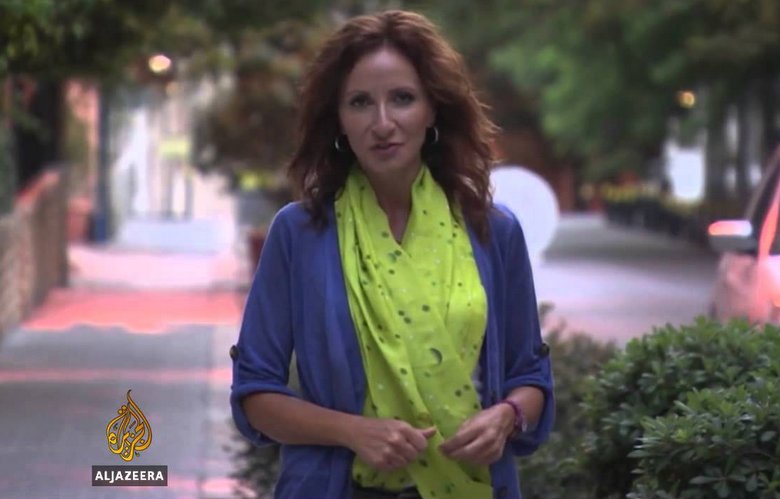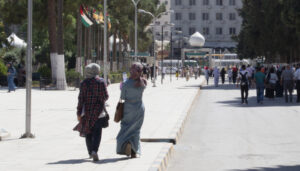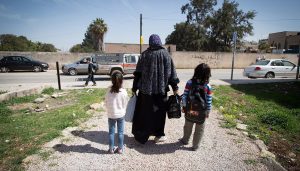By Nisreen Alami*
On 16 March 2015, one of the most prominent Arab female journalists, Rula Amin, was arrested in Amman in relation to the custody of her five-year old daughter. She was released the following day after a widespread public outrage both nationally, regionally and internationally. The arrest was made based on an appeal of an “expedient custody” court decision granted to the mother. Such decisions are usually used as an interim measure to safeguard the interest of the children given that child custody cases can drag for lengthy periods in our shari’a courts. The release was made following a series of legal procedures that undid the appeal. The custody case is still pending final resolution in court.
The reasons behind the outrage were not simply concern for the wellbeing of a child, or the empathy with the rights of a divorced mother, but rather by the unusual handling of this case by the very institutions mandated to safeguard the rule of law and protect the rights of citizens. It turns out that the appeal of “expedient custody” court decisions is illegal and contradicts with Jordanian law. Nonetheless, the appeal was issued by a judge in the Sharia’ courts, passed on to the judiciary execution arm of the court which in turn issued a notification to the mother to hand over the child to the father within seven days of 15 March. The arrest of the mother was made by the police less than 24 hours of issuing this notice.
Social media and respectable Arab newspapers and TV buzzed in a frenzy once the news broke out of the mother’s arrest. Friends of Rula, women’s rights advocates, respectable journalists, and politicians voiced their concern for potential breaches of justice in this case and the harm incurred on the child.
As a former Gender Policy Advisor at UN Women who worked in over forty countries and made contributions to global policies on women’s rights, I have great faith in governance and accountability systems to ensure legal rights of women. As I was following this case since August 2013, I was always astonished by the lack of accountability in our shari’a court systems. I was shocked to see that judges have unquestioned authority even in cases where they intentionally or unintentionally misrepresent the law. It is evident to me that despite significant reforms of the Jordanian personal status law, these reforms will always be lacking and meaningless if they do not include oversight and accountability mechanisms that protect women from discriminatory practices, or misjudgments. Our progress in ensuring a personal status law that is more fair to women will be of no value if it does not address two key elements: firstly, the issue of oversight and accountability, and secondly, the recognition of the existence of discriminatory and patriarchal values amongst many of the “all male” judges and junior officials in our shari’a courts. A visit to any shari’a court in Jordan will be sufficient to demonstrate the thousands of injustices and humiliation that women face on a daily basis on issues affecting their children, their families and their rights.
A visit to any shari’a court in Jordan will be sufficient to demonstrate the thousands of injustices and humiliation that women face on a daily basis
When Rula was arrested, many said this arrest of a “mother” whose only concern is the well being of her child and whose only crime is the bitterness of an ex-husband with powerful connections and lots of money is unprecedented in the history of Jordanian courts. But I seriously doubt that. Rula’s high profile and credibility nationally and internationally drew attention towards Jordan’s justice system, whereas in other similar cases the woman would not have been so fortunate. Some comments on facebook pointed out that Rula was in breach of a court order, and therefore, her arrest is justified. While this is arguable given that the police did not respect the 7-day notice stated in the notification of implementation, it is important to understand that the power of law and order lies in its integrity. Once that integrity is found missing, no citizen would feel obligated to comply. The case of this child’s custody obviously has many shortcomings as far as integrity is concerned. The turbulence in extracting court orders, the conflicting rulings, the denying of evidence with regard to claims of the mother’s frequent travel, the issuance of appeals from courts with no jurisdiction, and the unlawful procedures, the lost files, and the delayed or expedited executions – all of those, raise serious concerns.
This is all taking place in the month of March, the month that marks International Women’s Day which Jordan celebrates with great enthusiasm; the month when governments from around the world, including Jordan, gather in New York to affirm their commitments to women’s rights, and cite the advances they are making to eliminate discrimination against women in their laws, practices, services and budgets. It is also the month that we celebrate our mothers, all mothers – divorced, widowed, working mothers, poor mothers, illiterate mothers, or empowered mothers. But in Jordan, this year, national celebrations of international women’s day and mother’s day are deeply scarred by Rula’s story as a reminder of the thousands of mothers betrayed by the Jordanian justice system.
My hope, this March, is that the handling of Rula’s case is scrutinized and those responsible for the mistakes made accountable. Beyond that , my wish is that we learn from the story of Rula what a true reform of our justice system should look like and that we recognize that even our most revered institutions and officials can be driven by values opposing women’s rights and belittling commitment to rule of law. No institution should be exempt from respect of the rule of law and the protection of Jordanian citizens especially women and girls.
—
*Nisreen Alami worked as Policy Advisor with UN Women on Governance and National Planning. Between 2002 and 2012, she led the work of UNIFEM and UN Women on Gender Responsive Budgeting.







